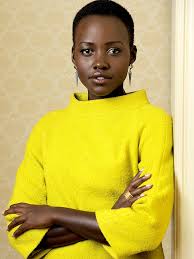 It’s not the word itself, it is the way she says it. Lorell Frysh who has been a friend and fellow teacher at Kabbalah Experience was born in South Africa. When she talks about people that move her she refers to them as lovely. It’s the way she says “lovely”.
It’s not the word itself, it is the way she says it. Lorell Frysh who has been a friend and fellow teacher at Kabbalah Experience was born in South Africa. When she talks about people that move her she refers to them as lovely. It’s the way she says “lovely”.
For many though “lovely” does not cut it. It is a word that lives on the edge between inner and outer beauty or as Merriam-Webster defines it: “Lovely is close to beautiful but applies to a narrower range of emotional excitation.” This past Tuesday, blogger Autumn Whitefield-Madrano chimed in with her own depiction of lovely as “mild yet vibrant; a melody, not a symphony. Lovely has grace but not quite elegance; elegance distances us from the subject, loveliness draws us in. Lovely is enjoyable. Lovely is pleasant. Lovely is nice. Lovely is a pretty face with an unmistakably chipped tooth. Lovely would not exist without love.” I found her blog by typing in google “lovely or beautiful”.
Lupita Nyong’o acceptance speech (not the one at the Oscars for best supporting actress but at an award ceremony entitled Essence: Black Women of Hollywood) focused on beauty. If one listens carefully she teaches an important lesson about a necessary step in discovering one’s inner beauty, discovering one’s loveliness. Click here to listen to Lupita’s speech
There is a moment in Ms. Nyongo’s speech that strikes a raw nerve among Hollywood’s powerful and beautiful women, a line that has not received much attention. She felt growing up that her complexion was an obstacle to overcome and that God had consistently been deaf to her desperate wish that she awaken from sleep to find her skin a lighter shade of brown, if not white. She then tells of her own budding awareness of what was holding her back from embracing her black skin as beautiful. Here is the line:
[I began to think I might be beautiful but] it was perplexing. I wanted to reject it because I had begun to enjoy the seduction of inadequacy.
Yes. There is a seduction of staying in or staying with the familiar, even when that familiar is totally inadequate.
It was her mother that helped dislodge her from self-judgment and propel her to self-validation. “My mother used to say to me, ‘You can’t eat beauty, it doesn’t feed you.’ And these words bothered me, I didn’t really understand them until finally I realized that beauty was not a thing that I could acquire or consume. It was something that I just had to be. And what my mother meant by saying that you can’t eat beauty is that you can’t rely on beauty to sustain you.”
There is a certain form of alchemy where beauty turns into loveliness. Ms. Nyongo has not only come to terms with her black skin, she has entered what she herself calls “the deeper business of feeling beautiful inside.”









1 Comment
Judy M. · March 6, 2014 at 4:37 pm
Great piece, David. I’m looking forward to sharing it.